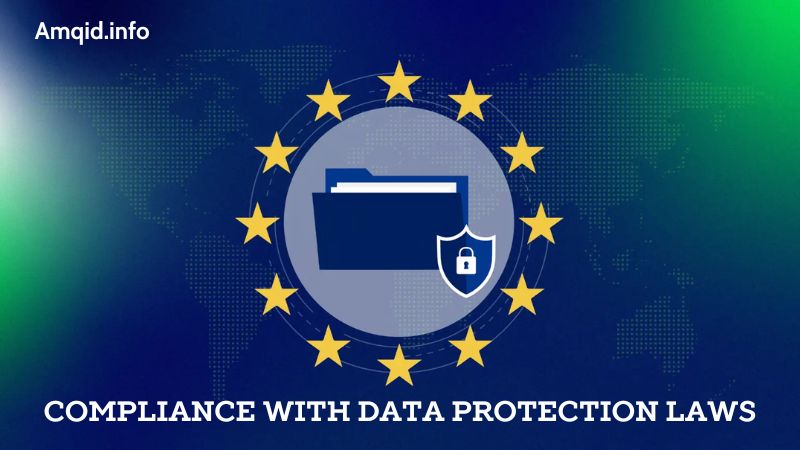In an era where digital interactions permeate every aspect of our lives, the significance of data privacy cannot be overstated. From social media platforms to e-commerce websites, our personal information is constantly being collected, analyzed, and utilized. However, amidst this digital landscape, one area that demands particular attention is ropa data privacy. Ropa, derived from the Spanish word for clothing, represents a niche yet burgeoning sector within the retail industry. As consumers increasingly turn to online platforms for their apparel needs, the importance of safeguarding their data within this domain becomes paramount.
Understanding Ropa Data Privacy
Ropa data privacy refers to the protection of personal information associated with clothing purchases, preferences, and behaviors in digital environments. It encompasses measures aimed at ensuring that individuals’ data is collected, processed, and stored securely, while also respecting their rights and preferences regarding its usage. As the retail industry undergoes a digital transformation, fueled by advancements in technology and changing consumer behaviors, the need for robust data privacy practices within the ropa sector becomes increasingly evident.

Challenges in Ropa Data Privacy
The proliferation of e-commerce platforms and mobile shopping apps has revolutionized the way consumers shop for clothing. With just a few clicks or taps, individuals can browse through a vast array of products, make purchases, and have items delivered to their doorstep. However, behind this convenience lies a complex web of data collection and analysis. Every interaction, from product searches to purchase history, generates valuable information that is eagerly captured by retailers.
Balancing Personalization and Privacy
One of the key challenges in ropa data privacy is striking the right balance between personalization and privacy. Retailers strive to deliver tailored experiences that resonate with individual preferences and tastes. However, this requires access to vast amounts of personal data, raising questions about consent, transparency, and user control. Consumers must be empowered to make informed decisions about the collection and use of their data, with clear opt-in and opt-out mechanisms in place.

Transparency in Data Practices
Transparency is another crucial aspect of ropa data privacy. Consumers have the right to know how their data is being collected, processed, and shared by retailers. This includes providing clear and concise privacy policies that outline the types of data collected, the purposes for which it is used, and the measures taken to protect it. By being transparent about their data practices, retailers can build trust with their customers and demonstrate their commitment to protecting their privacy.
Ensuring Data Security
Data security is paramount in ensuring ropa data privacy. Retailers must implement robust security measures to safeguard personal information from unauthorized access, disclosure, or misuse. This includes encryption, access controls, firewalls, and regular security audits to identify and address vulnerabilities. By investing in cybersecurity infrastructure, retailers can mitigate the risk of data breaches and safeguard the confidentiality and integrity of customer data.
Reactive Strategies for Data Breaches
In addition to proactive measures, ropa data privacy also encompasses reactive strategies for responding to data breaches or incidents. Retailers must have incident response plans in place to quickly detect, contain, and mitigate any breaches that may occur. This includes notifying affected individuals in a timely manner, cooperating with regulatory authorities, and taking steps to prevent future incidents. By responding swiftly and transparently to data breaches, retailers can minimize the impact on affected individuals and mitigate reputational damage.
Compliance with Data Protection Laws
As the regulatory landscape evolves, compliance with data protection laws and regulations is essential for ropa retailers. Laws such as the General Data Protection Regulation (GDPR) in Europe and the California Consumer Privacy Act (CCPA) in the United States impose strict requirements on the collection, processing, and storage of personal data. Retailers must ensure that their data practices comply with these regulations, including obtaining explicit consent from individuals before collecting their data, providing mechanisms for data access and deletion, and implementing appropriate security measures.

Adapting to Technological Advances
Furthermore, as technology continues to advance, ropa retailers must stay vigilant against emerging threats and vulnerabilities. From artificial intelligence and machine learning algorithms to Internet of Things (IoT) devices and wearable technology, new technologies bring new opportunities and challenges for data privacy. Retailers must stay abreast of these developments and adapt their data privacy strategies accordingly to ensure that they remain effective and compliant.
Sum Up
In conclusion, ropa data privacy is a critical issue that requires careful attention and proactive measures from retailers, regulators, and consumers alike. By prioritizing transparency, consent, security, and compliance, retailers can build trust with their customers and foster a culture of responsible data stewardship. In an age where data is increasingly valuable and vulnerable, protecting ropa data privacy is not just a legal obligation but a moral imperative. Only by working together can we ensure that personal information remains safe and secure in the digital age.
